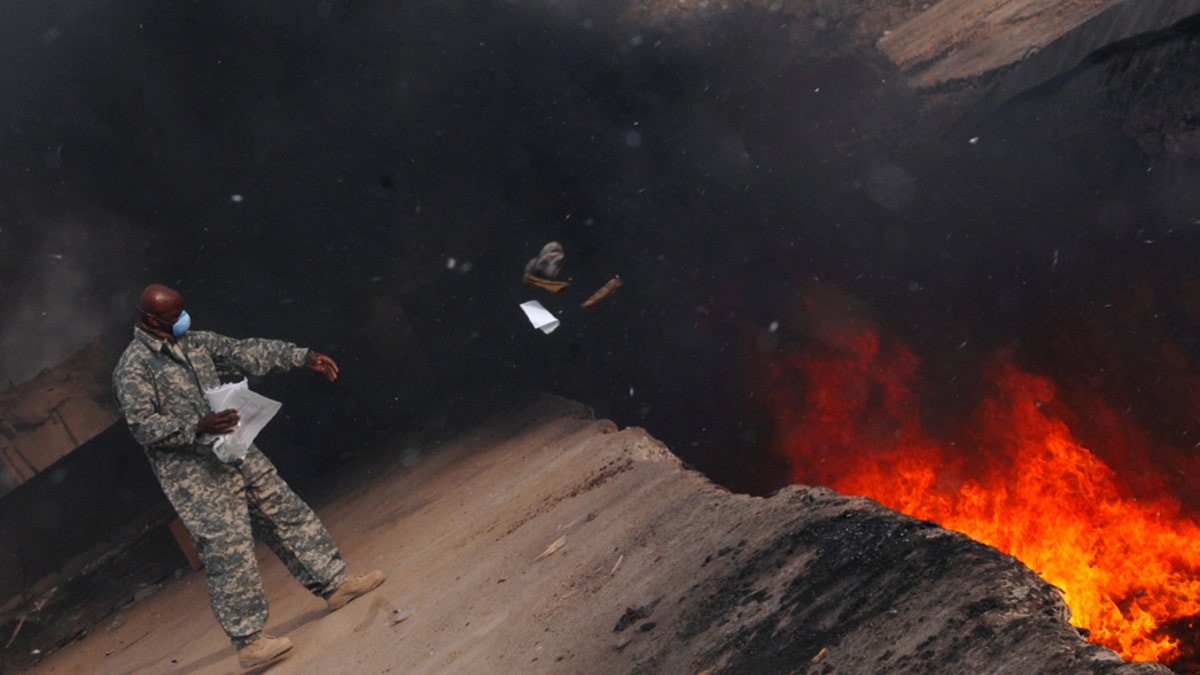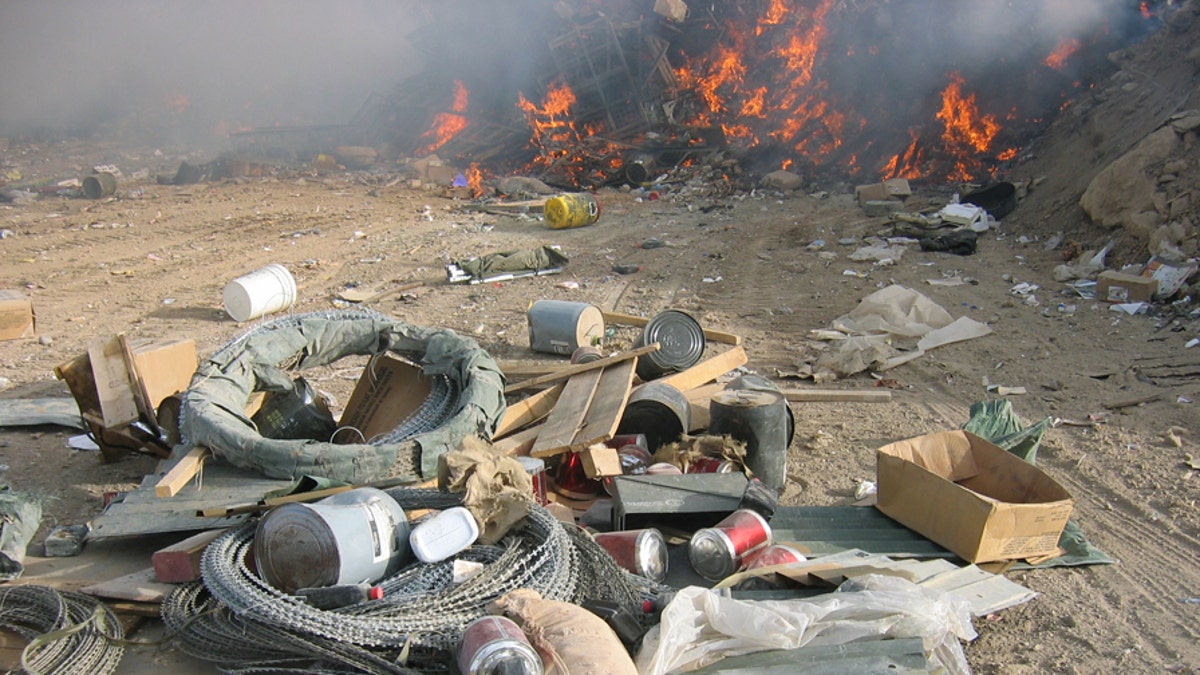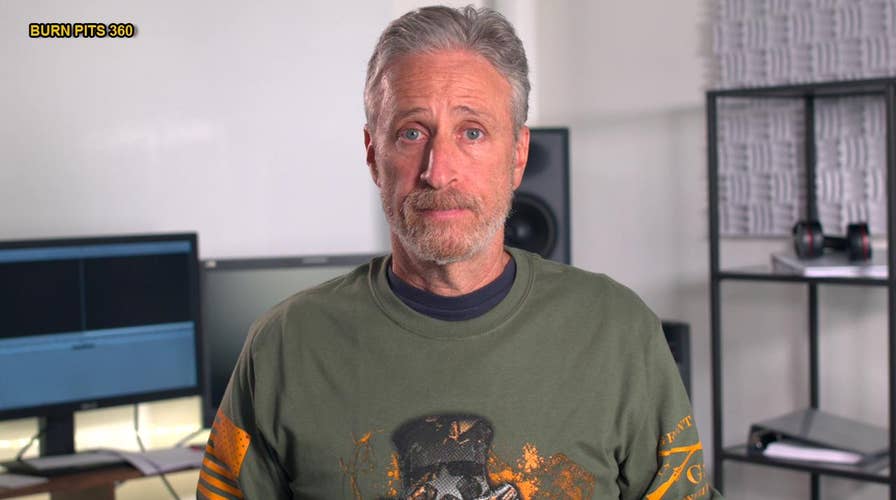Jon Stewart now advocating for veterans affected by burn pit exposure
Comedian and advocate Jon Stewart in a new PSA to raise awareness of the issues that veterans exposed to burn pits are facing.
Now that thousands of those who were made ill due to their exposure to toxins at Ground Zero are finally receiving access to a crucial compensation fund, Jon Stewart has set his sights on helping the hundreds of thousands of veterans who may have become sick due to burn pit exposure.
The former host of The Daily Show has begun to focus his philanthropic sights on bringing awareness to ongoing efforts on the issue, which occurred when service members and contractors were exposed to a toxic stew of airborne pollutants while stationed in Iraq and Afghanistan.
“You deserve more than the country’s gratitude for your service,” Stewart says in the two-minute PSA, seemingly speaking directly to veterans. “You deserve full medical benefits to help you with your illness.”
“Together we are going to work to get you justice and get you healed.”
JON STEWART BLASTS CONGRESS OVER 9/11 FUNDING HEARING: 'DROVE ME NUTS' THERE WERE EMPTY SEATS
In the two-minute PSA, which was released on September 11, Stewart explains how the survivors of 9/11 were finally able to get the financial assistance they needed and then makes the case for the same help to be provided to veterans exposed to burn pits.
“Post-9-11, there was a long fight to get New York City’s first responders appropriate help to pay for medical costs from the long-term toxic exposures to the collapsed buildings in lower Manhattan. The nation and eventually Congress stood behind our heroes,” Stewart says in the video. “But now more than ever we need to focus our support on the post-9-11 war veterans, who have been suffering from the debilitating effects of the massive toxic burn pits they were exposed to during service overseas. The effects have been horrific.”
Stewart is the first mainstream celebrity to throw his support behind the issue and is working with Texas-based advocacy group Burn Pits 360, which produced the new PSA.
“We are really honored that Jon Stewart is adding his voice to our cause of getting the federal government to respond to the health needs of its veterans who have been poisoned by toxins as a result of their service,” Rosie Lopez, co-founder of Burn Pits 360 told Fox News. “His work in getting Washington to respond to the needs of 9/11 responders and survivors injured by the toxins at Ground Zero shows that we can eventually get Washington to respond to the health crisis facing so many of our active-duty soldiers, sailors and marines and our veterans.”
BRUCE SPRINGSTEEN, JON STEWART HEADLINE VETERANS' FUNDRAISER

Thousands of U.S. military personnel who served on bases in Iraq and Afghanistan were exposed to the dense black smoke (Public Domain)
The new PSA from Stewart and Burn Pits 360 was born out of an increasing partnership between Lopez’s organization and advocates for 9-11 responders who recently saw the Victims Compensation fund approved by Congress.
“Many of the 9-11 Advocates served at 9-11 and in the military, many are veterans. Many suffered exposure both at 9-11 and in Iraq,” Lopez said. “Together we will walk the halls of Congress to seek justice for those affected, including the widows/Gold Star families.”
During the wars in both Iraq and Afghanistan, the burn pit method was adopted originally as a temporary measure to get rid of waste and garbage generated on bases. Everything was incinerated in the pits, say soldiers, including plastics, batteries, appliances, medicine, dead animals and even human waste. The items were often set ablaze with jet fuel as the accelerant.
HERO 9/11 FIRST RESPONDER WITH CANCER DIES AT 53; TESTIFIED TO CONGRESS WITH JON STEWART
The pits burned more than 1,000 different chemical compounds day and night, and most service members breathed in toxic fumes with no protection.
The Investigative Unit at Fox News has reported extensively on the issues surrounding veterans made sick from their exposure to burn pits, and the lack of assistance once they feel ill.

Burn pits, like this one at FOB Marez, were originally considered a temporary measure to get rid of huge amounts of waste generated at bases. The array of material sent to the pits is said to have included plastics, batteries, metals, appliances, medicine, dead animals and even human waste. (Courtesy of John Nelson)
Since 2016, Fox reporting has led to scores of interviews with veterans and their families as well as those who warned military officials during the wars in Iraq and Afghanistan about the dangers of burn pits at bases like Operating Base Marez in Mosul, Iraq. They also included inspectors who answered directly to the Pentagon and urged them to stop using the flawed method for trash disposal.
The investigative unit also interviewed General David Petraeus, who was in charge of the U.S. military campaign during the time the burn pits were being used.
Burn Pits 360 is looking to help bring forth two new pieces of legislation that would help get veterans the assistance needed in their health care.
One is the Family Member Access to Burn Pit Registry Act (H.R. 1001), which would allow family members of deceased Service Members to participate in the Airborne Hazards and Open Burn Pit Registry on their behalf with new registry entries. The second is the Burn Pits Revision Act (H.R. 1005) which would require the Department of Veterans Affairs (VA) to establish a diagnostic code and evaluation criteria for constrictive (obliterative) bronchiolitis, the most common symptom among those exposed to burn pits.
Lopez says the widows and their families are being denied death benefits at an alarming rate.
Allowing surviving family members to report deaths as well as the cause will help establish mortality rates related to conditions and diseases associated with burn pit exposure, she said.
A registry was created by the Veterans Administration in 2011, but signing it does not guarantee any form of assistance. Service members and their families concerned with the effects of burn-pit exposure say that they struggle to keep up with the high cost of medical treatments. There are more than 180,000 names signed to the VA registry, but it is estimated that 3.5 million veterans have been exposed to burn pits.









































